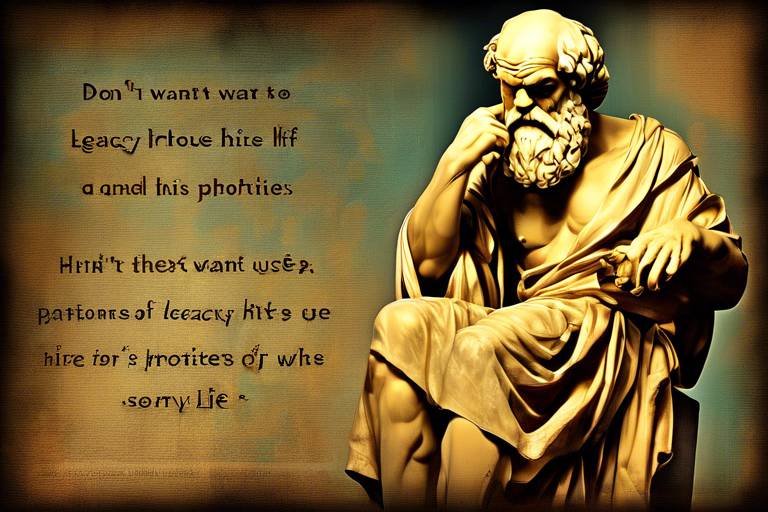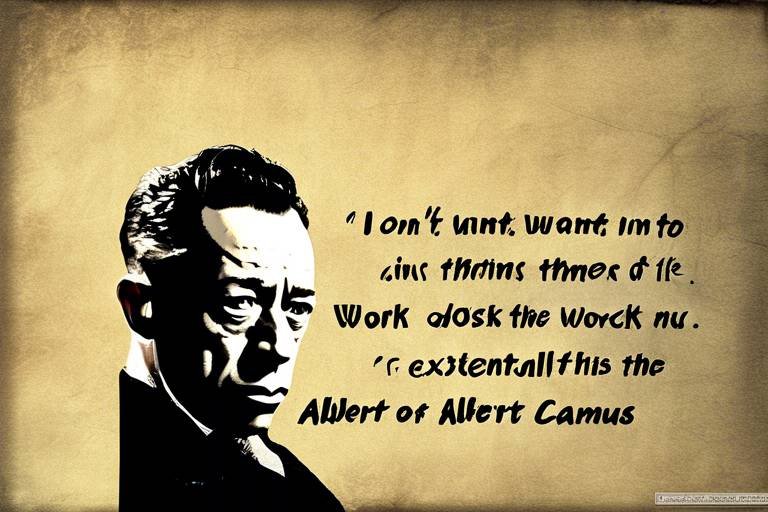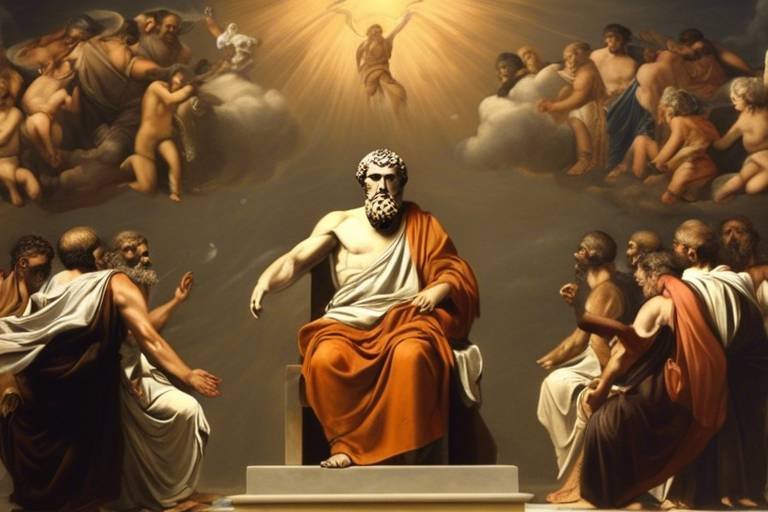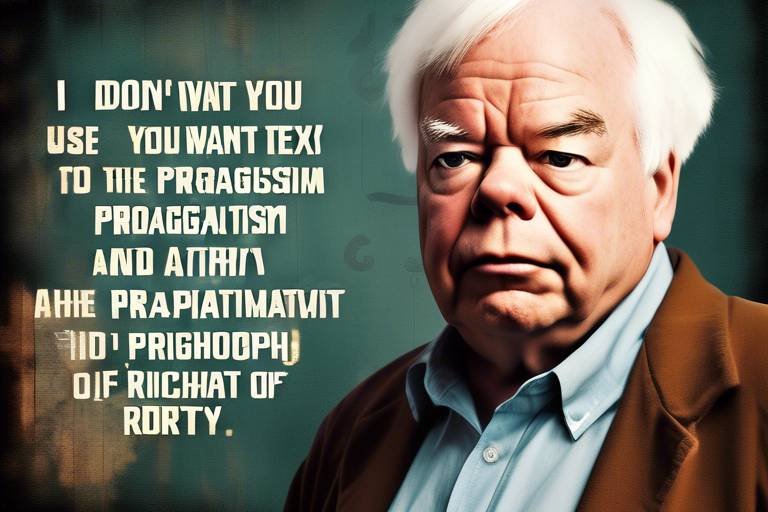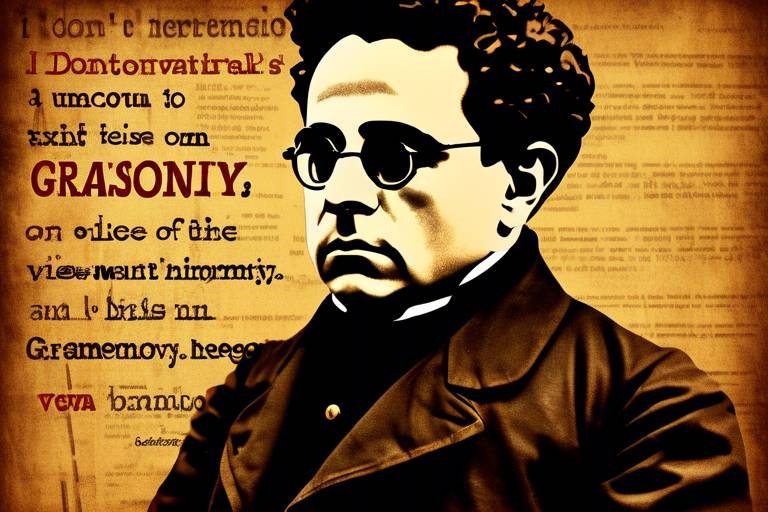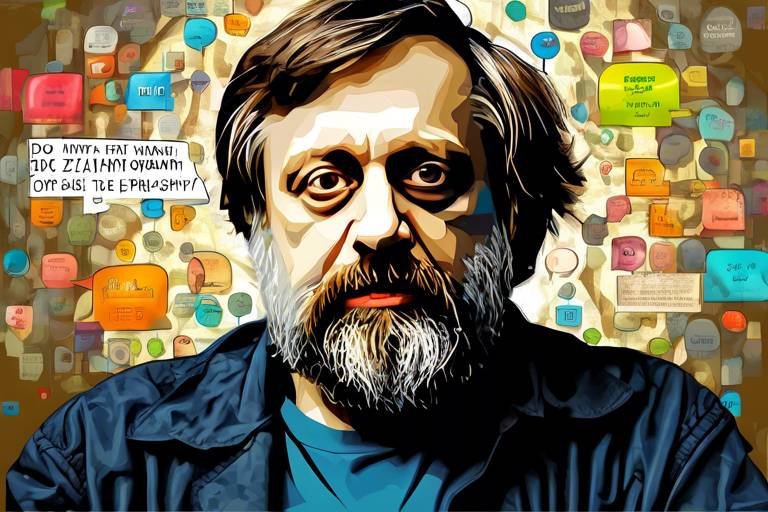Featuring Bertrand Russell – The 20th Century Philosopher From Britain
Bertrand Russell, a name that resonates through the corridors of philosophy, logic, and social activism, was a towering figure of the 20th century. Born on May 18, 1872, in Trellech, Wales, his life was a tapestry woven with intellectual rigor and a passionate commitment to social justice. Russell's journey was not just about the pursuit of knowledge; it was an exploration of the very essence of human existence, ethics, and the complexities of society. His philosophical inquiries were marked by a profound curiosity and an unwavering belief in the power of reason. As we delve into his life and works, we uncover the layers of a thinker who not only challenged established norms but also inspired generations to question and seek truth.
Russell's contributions spanned various domains, including mathematics, philosophy, and political activism, making him a polymath in every sense of the word. He co-authored the groundbreaking work Principia Mathematica with Alfred North Whitehead, which aimed to establish a solid logical foundation for mathematics. This monumental text is often regarded as a cornerstone of modern logic and has had a lasting impact on the field. Furthermore, his paradox, known as Russell's Paradox, posed significant challenges to naive set theory, showcasing his ability to provoke thought and debate.
Beyond his academic pursuits, Russell was a passionate advocate for peace and social reform. His outspoken views on nuclear disarmament, pacifism, and civil rights placed him at the forefront of social movements during his lifetime. He believed that philosophy should not only be an abstract pursuit but also a tool for social change. This belief drove him to engage with pressing issues of his time, making him not just a philosopher but a moral compass for many.
In this article, we will explore the multifaceted life of Bertrand Russell, examining his early influences, philosophical contributions, and enduring legacy. From his formative years and education at Cambridge to his revolutionary ideas on education, Russell's journey is a testament to the power of thought and the importance of questioning the status quo. Join us as we uncover the profound impact of this remarkable thinker who shaped the landscape of modern philosophy and continues to inspire minds around the world.

Early Life and Education
Bertrand Russell was born on May 18, 1872, into a family steeped in aristocracy and intellectualism. His early life was marked by a blend of privilege and personal tragedy, which profoundly shaped his philosophical outlook. Russell's father, a liberal politician, died when he was just three years old, and his mother, a strong-willed woman, raised him alongside his siblings with the help of their maternal grandparents. This upbringing fostered a sense of independence and critical thinking in young Bertrand, who would later become a beacon of rational thought.
Russell's education began at home, where he was taught by a governess until the age of 11. His early exposure to literature and philosophy ignited a passion for learning that would define his life. In 1884, he entered the prestigious Trinity College, Cambridge, a decision that would be pivotal in his intellectual development. At Cambridge, he was influenced by prominent thinkers such as G.E. Moore and John Maynard Keynes, who encouraged him to question established norms and explore new ideas.
During his time at Cambridge, Russell excelled in mathematics and philosophy, earning a first-class degree in 1893. His studies in logic and mathematics led him to explore the foundations of these fields, ultimately steering him toward a lifelong quest for clarity and precision in thought. The intellectual environment at Cambridge was vibrant, filled with debates and discussions that challenged Russell to refine his ideas. He often remarked that the atmosphere of the university was like a “breath of fresh air”, invigorating his mind and inspiring him to delve deeper into philosophical inquiries.
Russell's early influences were not limited to academia. He was also shaped by the social and political climate of his time. The late 19th century was a period of significant change, with the rise of industrialization and the questioning of traditional values. Russell's exposure to these societal shifts fostered a critical perspective on authority and dogma. He became increasingly aware of the importance of individual thought and the necessity of questioning accepted beliefs, a theme that would resonate throughout his works.
In summary, Bertrand Russell's early life and education were instrumental in developing his philosophical ideas. The combination of personal experiences, academic rigor, and societal influences created a fertile ground for his intellectual growth. As he transitioned from a curious child to a formidable thinker, Russell's journey was characterized by a relentless pursuit of knowledge and a commitment to challenging the status quo. This foundation would not only shape his future works but also cement his legacy as one of the most significant philosophers of the 20th century.

Philosophical Contributions
Bertrand Russell was a true pioneer in the realm of philosophy, and his contributions spanned various fields that reshaped the landscape of modern thought. His work is characterized by a rigorous commitment to clarity and logical precision, which not only influenced philosophy but also impacted mathematics and the social sciences. Russell believed that philosophy should address real-world problems and promote understanding, rather than become an abstract discipline disconnected from everyday life. This practical approach is evident in his extensive writings, where he tackled complex issues with a refreshing straightforwardness.
One of Russell's most significant contributions was in the area of logic and analytical philosophy. He sought to clarify the relationship between language and reality, arguing that many philosophical problems arise from misunderstandings of language. He famously stated, "The greatest challenge to philosophy is to eliminate the confusion caused by the misuse of words." His work laid the groundwork for what we now know as analytical philosophy, a movement that prioritizes logical analysis and clarity of thought. Russell's theories on propositions and relations are particularly noteworthy, as they provided a framework for understanding how statements can be true or false based on their structure.
Russell's commitment to logical rigor culminated in his development of symbolic logic, which revolutionized the way philosophers and mathematicians approached logical reasoning. He introduced concepts such as quantifiers and variables, which allowed for a more systematic analysis of arguments. This shift not only advanced philosophical inquiry but also influenced the development of computer science and artificial intelligence. In essence, Russell's work in logic provided the tools necessary for future generations to engage in precise and meaningful discussions about the nature of reality.
Co-authored with Alfred North Whitehead, the monumental work Principia Mathematica aimed to derive all mathematical truths from a set of logical axioms. This ambitious project sought to demonstrate that mathematics could be grounded in logic, thereby establishing a foundation for mathematical truths that was both rigorous and undeniable. The impact of this work cannot be overstated; it not only influenced mathematicians but also had profound implications for philosophers who grappled with the nature of mathematical existence. The book itself is a testament to Russell's belief in the power of logical analysis, showcasing how complex ideas can be distilled into clear, comprehensible terms.
Among Russell's many contributions, Russell's Paradox stands out as a striking challenge to set theory. This paradox arises when considering the set of all sets that do not contain themselves. If such a set exists, it leads to a contradiction: if it does contain itself, then by definition it should not; if it does not contain itself, then it must contain itself. This paradox not only unsettled the foundations of set theory but also prompted deeper investigations into the nature of mathematical and logical systems. It serves as a reminder of the complexities inherent in seemingly straightforward concepts, highlighting Russell's profound impact on the field of logic.
In addition to his work in logic and mathematics, Russell's philosophical contributions extend to the realms of epistemology and the philosophy of language. He was deeply interested in the nature of knowledge and belief, often questioning how we come to know what we know. His famous theory of descriptions provided a novel way to analyze sentences that refer to non-existent entities, reshaping discussions in the philosophy of language. Russell's ability to dissect complex ideas and present them clearly has made his work accessible and influential across various disciplines.
In summary, Bertrand Russell's philosophical contributions are vast and varied, encompassing logic, mathematics, epistemology, and language. His insistence on clarity, logical precision, and practical application has left an indelible mark on modern philosophy. As we continue to engage with his ideas, it's clear that Russell's legacy will endure, inspiring future thinkers to explore the profound questions of existence, knowledge, and society.

Logic and Analytical Philosophy
Bertrand Russell was a trailblazer in the realm of logic and analytical philosophy, a field that sought clarity and precision in philosophical discourse. His work fundamentally transformed how we think about logic and its applications in philosophy. Imagine a world where philosophical arguments were muddled and vague; Russell's contributions acted like a beacon, illuminating the path toward rigorous analysis. He believed that many philosophical problems arose from a misunderstanding of language and logic, and he dedicated much of his life to unraveling these complexities.
At the heart of Russell's philosophy was the idea that to truly understand a statement, one must analyze its components. This approach led him to develop theories on propositions and relations, which are essential in understanding the structure of logical arguments. For Russell, logic was not merely a tool for mathematicians; it was a foundational element for all philosophical inquiries. He famously stated, “The law of non-contradiction is the most fundamental law of thought.” This statement encapsulates his belief that clarity in thought leads to clarity in language, which in turn leads to clarity in philosophy.
One of the most significant milestones in Russell's logical work was his co-authorship of Principia Mathematica with Alfred North Whitehead. This monumental text aimed to establish a solid foundation for mathematics based on logical principles. Imagine trying to build a skyscraper without a solid foundation; the entire structure would be at risk of collapse. Similarly, Russell and Whitehead sought to ensure that mathematics was grounded in logical certainty. The impact of this work reverberated through both mathematics and philosophy, influencing countless thinkers and laying the groundwork for future developments in mathematical logic.
Russell's exploration of logic also led him to discover what is now known as Russell's Paradox. This paradox arises when we consider a set that contains all sets that do not contain themselves. It’s a classic example of how intuitive notions can lead to contradictions when examined closely. This paradox not only challenged existing notions in set theory but also prompted a reevaluation of the foundations of mathematics and logic. Russell's Paradox serves as a reminder that even the simplest concepts can yield profound complexities when scrutinized. It’s like peeling an onion; each layer reveals deeper and sometimes more troubling truths.
Through his rigorous analysis, Russell championed the idea that philosophy should be grounded in empirical evidence and logical reasoning. He argued that philosophical problems should be approached with the same rigor as scientific inquiries. This perspective paved the way for future philosophers to adopt a more analytical approach, emphasizing the importance of clarity and precision. Russell's influence can be seen in the works of later philosophers who embraced his methods, further solidifying his legacy in the landscape of modern philosophy.
In summary, Bertrand Russell's contributions to logic and analytical philosophy were nothing short of revolutionary. He not only provided tools for better understanding philosophical arguments but also challenged the very foundations upon which many philosophical ideas stood. His work continues to inspire and provoke thought, making him a pivotal figure in the evolution of modern philosophy.
- What is the significance of Russell's Paradox?
Russell's Paradox highlights contradictions within set theory, prompting a reevaluation of mathematical foundations and influencing the development of modern logic.
- How did Russell contribute to analytical philosophy?
Russell emphasized clarity and precision in philosophical discourse, laying the groundwork for future analytical philosophers and promoting the use of logical analysis in addressing philosophical problems.
- What was the aim of Principia Mathematica?
The aim was to derive mathematics from logical foundations, establishing a rigorous framework for mathematical truths and influencing both mathematics and philosophy.

Principia Mathematica
, co-authored by Bertrand Russell and Alfred North Whitehead, is one of the most significant works in the realm of logic and mathematics. Published in three volumes between 1910 and 1913, this monumental text aimed to establish a solid foundation for mathematics based on formal logic. Imagine trying to build a skyscraper without a solid foundation; that’s the kind of intellectual endeavor Russell and Whitehead embarked upon. They sought to show that all mathematical truths could be derived from a small set of axioms using logical deduction.
The work is dense and complex, filled with intricate symbols and formal proofs. However, its essence can be distilled into a few key ideas that revolutionized the way we think about mathematics and logic. Here are some pivotal aspects of :
- Logical Foundations: Russell and Whitehead proposed that mathematics is not just a collection of numbers and operations but a system built on logical principles. They aimed to demonstrate that mathematical statements could be reduced to logical expressions.
- Symbolic Logic: The authors introduced a formal language that allowed for the precise expression of mathematical concepts. This was a significant leap forward, as it paved the way for future developments in both mathematics and computer science.
- Hierarchy of Types: To avoid paradoxes (like Russell's own paradox), they developed a theory of types, which categorizes objects and avoids self-referential definitions. This was crucial for maintaining consistency within mathematical systems.
The impact of extends far beyond its pages. It laid the groundwork for what would later be known as analytical philosophy and influenced numerous thinkers in various fields, from mathematics to computer science. The rigorous approach to logic that Russell and Whitehead advocated became a cornerstone of the 20th-century philosophical landscape.
However, despite its groundbreaking contributions, is not without its challenges. The complexity of its content can be daunting, and many have found it difficult to fully grasp the implications of its arguments. Yet, those who persevere are rewarded with a deeper understanding of the philosophical underpinnings of mathematics and the nature of logical reasoning.
In conclusion, is not just a book; it is a pivotal moment in the history of human thought. It represents the marriage of logic and mathematics, a relationship that continues to influence contemporary discussions in philosophy, science, and beyond. As we navigate the complexities of the modern world, the insights derived from this monumental work remain relevant, reminding us of the power of clear thinking and rigorous reasoning.
What is the main goal of Principia Mathematica?
The main goal of Principia Mathematica is to show that all of mathematics can be derived from logical axioms through formal proofs, thereby establishing a solid foundation for mathematical truths.
Why is Principia Mathematica considered difficult to read?
The text is filled with complex symbols and formal logic that can be challenging for readers without a strong background in mathematics or logic. Its density and rigor require careful study and comprehension.
How did Principia Mathematica influence modern philosophy?
It laid the groundwork for analytical philosophy, influencing many thinkers in various fields by emphasizing the importance of clarity, precision, and logical reasoning in philosophical discourse.

Russell's Paradox
Bertrand Russell's paradox is not just a dry, mathematical conundrum; it’s a profound challenge to the foundations of set theory and logic that shook the philosophical world. Imagine a barber who shaves all those who do not shave themselves. The question arises: does the barber shave himself? If he does, according to the rule, he shouldn't; if he doesn't, then he must. This scenario encapsulates the essence of Russell's paradox, which reveals inconsistencies within naive set theory.
To delve deeper, Russell's paradox arises when we consider the set of all sets that do not contain themselves. If such a set exists, we run into a logical contradiction. If it contains itself, then by definition, it should not; if it does not contain itself, then it must contain itself. This paradox has profound implications, not just for mathematics but for philosophy as a whole, as it questions the very nature of sets and collections.
Russell introduced this paradox in his 1901 paper, "On Some Difficulties in the Foundations of Mathematics." His work prompted a reevaluation of the axioms underlying set theory, leading to the development of more rigorous systems, such as Zermelo-Fraenkel set theory, which includes the Axiom of Separation to avoid such contradictions. The paradox illustrates the need for careful definitions in mathematics and has influenced various fields, including logic, philosophy, and computer science.
In essence, Russell's paradox serves as a reminder of the complexities inherent in seemingly straightforward concepts. It challenges us to question our assumptions and to seek clarity in our definitions. The implications of this paradox extend beyond mathematics, prompting discussions about the limits of human understanding and the nature of truth itself.
As we reflect on Russell's contributions, it's essential to recognize how his insights into this paradox have shaped modern philosophical discourse. The ongoing exploration of these ideas continues to inspire thinkers today, underscoring the relevance of Russell's work in our quest for knowledge.
- What is Russell's Paradox?
It is a logical paradox that arises when considering the set of all sets that do not contain themselves, leading to a contradiction. - Why is Russell's Paradox important?
It challenges the foundations of set theory and has influenced the development of more rigorous mathematical systems. - How did Russell's Paradox affect philosophy?
It prompted discussions about the nature of sets, collections, and the limits of human understanding. - What solutions were proposed for Russell's Paradox?
The development of Zermelo-Fraenkel set theory and the Axiom of Separation were key responses to avoid such contradictions.

Political Activism
Bertrand Russell was not just a towering figure in philosophy; he was also a passionate political activist whose voice resonated through the tumultuous events of the 20th century. His activism was fueled by a profound sense of justice and a commitment to social change, which often put him at odds with prevailing political norms. Russell's involvement in various movements, particularly **pacifism**, **nuclear disarmament**, and **civil rights**, showcased his belief that intellectual pursuits should not be divorced from the pressing issues of society.
One of Russell's most significant contributions to political activism was his staunch opposition to war. During World War I, he became a vocal critic of the conflict, arguing that it was driven by imperialist ambitions rather than noble ideals. His anti-war stance led to his imprisonment in 1918 for promoting pacifism and opposing conscription. This experience only deepened his resolve, and he continued to advocate for peace throughout his life, famously stating, "War does not determine who is right - only who is left."
In the post-World War II era, Russell emerged as a leading figure in the **nuclear disarmament** movement. The advent of nuclear weapons posed a new existential threat, and he was quick to recognize the need for global cooperation to mitigate this danger. In 1955, he co-authored the Russell-Einstein Manifesto, which called for the reduction of nuclear arms and emphasized the importance of dialogue over conflict. His efforts in this realm were not just theoretical; he participated in numerous rallies and campaigns aimed at raising public awareness about the catastrophic potential of nuclear warfare.
Russell's activism extended beyond the realm of war and peace. He was also a fierce advocate for **civil rights**, particularly during the civil rights movement in the United States. He believed in the fundamental equality of all individuals, regardless of race or background. In the 1960s, he publicly supported the civil rights movement and criticized the systemic racism that plagued societies. His writings and speeches during this period emphasized the importance of justice and equality, urging people to stand against oppressive systems.
Throughout his life, Russell faced significant backlash for his views. Critics often labeled him as a radical or an idealist, but he remained undeterred. He understood that true progress often requires challenging the status quo and advocating for what is right, even when it is unpopular. His life was a testament to the idea that **intellectual engagement** with political issues is not only necessary but also a moral obligation.
To summarize his contributions, we can highlight some key aspects of Russell's political activism:
- Pacifism: Vocal critic of wars, especially World War I, advocating for peace and understanding.
- Nuclear Disarmament: Key figure in the movement against nuclear weapons, co-authoring the Russell-Einstein Manifesto.
- Civil Rights Advocacy: Supporter of equality and justice, aligning with civil rights movements in the 1960s.
In conclusion, Bertrand Russell's political activism was an integral part of his legacy. He believed that philosophy should not exist in a vacuum but should engage with the world around it. His commitment to peace, justice, and equality continues to inspire activists and thinkers today, reminding us that the pursuit of knowledge must be accompanied by a dedication to social responsibility.
- What motivated Bertrand Russell's activism? Russell was motivated by a deep sense of justice and the belief that intellectual engagement with societal issues was a moral obligation.
- How did Russell contribute to the nuclear disarmament movement? He co-authored the Russell-Einstein Manifesto and participated in various campaigns aimed at promoting peace and reducing nuclear arms.
- What were some of Russell's key beliefs regarding civil rights? Russell believed in equality for all individuals and actively supported movements that fought against systemic racism and oppression.

Influence on Education
Bertrand Russell’s impact on education is nothing short of revolutionary. He believed that education should not merely be about memorizing facts or passing exams; rather, it should be a journey of discovery, fostering critical thinking and curiosity in students. Russell argued that the traditional educational system stifled creativity and individuality, often turning vibrant young minds into mere vessels of information. He envisioned a system where students are encouraged to ask questions, challenge norms, and engage in meaningful dialogue. This perspective was radical for his time and remains relevant today.
In his writings, Russell emphasized the importance of teaching methods that promote active learning rather than passive absorption. He believed that students should be involved in their learning processes, which leads to deeper understanding and retention of knowledge. For instance, instead of rote learning, he advocated for discussions, debates, and hands-on activities that would stimulate intellectual engagement. This approach not only makes learning enjoyable but also equips students with the skills they need to navigate the complexities of modern life.
Russell’s educational philosophy can be summarized in a few key principles:
- Encouragement of Individuality: He believed that each student is unique and should be allowed to explore their interests and talents.
- Critical Thinking: Russell emphasized the necessity of questioning assumptions and developing the ability to think independently.
- Fostering Curiosity: He argued that education should ignite a lifelong love for learning, encouraging students to seek knowledge beyond the classroom.
Moreover, Russell was a proponent of progressive education, which aimed to prepare students for real-world challenges rather than just academic success. He argued that education should be relevant and applicable to everyday life, helping students to develop practical skills alongside theoretical knowledge. This holistic approach to education has influenced countless educators and institutions, encouraging them to rethink their teaching methodologies.
Today, many educational systems around the world are beginning to adopt principles that resonate with Russell's vision. The shift towards student-centered learning, where the needs and interests of students take precedence, can be traced back to his pioneering ideas. Schools are increasingly focusing on creating environments that are conducive to exploration and innovation, much like what Russell advocated for.
In conclusion, Bertrand Russell's influence on education transcends time and geography. His ideas continue to inspire educators to create learning environments that are dynamic, engaging, and tailored to the needs of individual students. By nurturing critical thinking and creativity, Russell's educational philosophy not only prepares students for academic success but also equips them to become thoughtful, responsible members of society.
- What was Bertrand Russell's main contribution to education? Russell believed in fostering critical thinking and individuality in education, advocating for a system that encourages curiosity and active learning.
- How did Russell view traditional education? He viewed traditional education as stifling creativity and promoting rote memorization, which he believed was detrimental to true learning.
- What are some key principles of Russell's educational philosophy? Key principles include encouragement of individuality, critical thinking, and fostering curiosity among students.
- Is Russell's educational philosophy still relevant today? Yes, many modern educational practices reflect Russell's ideas, focusing on student-centered learning and real-world applicability.

Russell's Educational Philosophy
Bertrand Russell’s philosophy on education was nothing short of revolutionary. He believed that education should not merely be about rote learning or memorization; instead, it should foster curiosity and encourage critical thinking. In his view, the traditional methods of teaching stifled creativity and individuality, which are essential for a thriving society. Russell advocated for a system where students are actively engaged in their learning process, rather than passive recipients of information. He famously stated, “The good life is one inspired by love and guided by knowledge,” encapsulating his belief that education should be a harmonious blend of these two elements.
One of the cornerstones of Russell's educational philosophy was the emphasis on freedom of thought. He argued that students should be encouraged to question established norms and think independently. In a world overflowing with information, the ability to discern truth from falsehood is more crucial than ever. Russell believed that by nurturing this ability in students, educators could prepare them to face the complexities of modern life. He proposed that schools should create an environment where students feel safe to express their ideas and challenge conventional wisdom.
Furthermore, Russell recognized the importance of emotional development in education. He argued that emotional intelligence is just as vital as intellectual prowess. A well-rounded education should address both aspects, helping students develop empathy and social skills alongside academic knowledge. He believed that education should not only prepare students for careers but also for life, fostering a sense of responsibility towards society. This holistic approach is particularly relevant today as we grapple with issues of social justice and community engagement.
Russell also emphasized the need for an interdisciplinary approach in education. He argued that subjects should not be taught in isolation; rather, they should be interconnected, reflecting the complexities of real-world problems. For instance, understanding environmental issues requires knowledge of science, ethics, and economics. By integrating different disciplines, Russell believed that students could develop a more comprehensive understanding of the world around them. This approach not only enriches the learning experience but also prepares students to tackle multifaceted challenges.
In his writings, Russell often pointed out the flaws in the existing educational systems of his time. He criticized the emphasis on standardized testing and the pressure to conform, which he believed led to a culture of fear and competition rather than collaboration and creativity. He proposed a more progressive educational model that prioritized the individual needs and interests of students. This model encourages educators to tailor their teaching methods to suit the diverse learning styles of their students, ultimately fostering a more inclusive and supportive learning environment.
To summarize, Russell's educational philosophy can be encapsulated in the following key principles:
- Fostering Curiosity: Encouraging students to ask questions and explore their interests.
- Critical Thinking: Teaching students how to analyze and evaluate information critically.
- Emotional Development: Recognizing the importance of emotional intelligence in education.
- Interdisciplinary Approach: Integrating various subjects to reflect real-world complexities.
- Individualized Learning: Adapting teaching methods to meet the unique needs of each student.
In essence, Russell's vision for education was not just about imparting knowledge but about nurturing well-rounded individuals who are prepared to contribute positively to society. His ideas continue to resonate in contemporary discussions about educational reform, highlighting the need for a system that values creativity, critical thinking, and emotional intelligence.
1. What was Bertrand Russell's main philosophy regarding education?
Russell believed that education should foster curiosity, critical thinking, and emotional development, rather than merely focusing on rote memorization.
2. How did Russell view traditional teaching methods?
He criticized traditional methods for stifling creativity and individuality, advocating for a more progressive and individualized approach to education.
3. What is the significance of emotional intelligence in Russell's educational philosophy?
Russell emphasized that emotional intelligence is just as important as academic knowledge, as it helps students develop empathy and social skills necessary for a fulfilling life.
4. How does Russell's philosophy apply to modern education?
His ideas encourage current educational systems to prioritize critical thinking, interdisciplinary learning, and individualized approaches to meet the diverse needs of students.

Legacy in Modern Philosophy
Bertrand Russell's legacy in modern philosophy is nothing short of monumental. His ideas resonate through the corridors of contemporary thought, influencing a myriad of disciplines beyond philosophy itself. From ethics to science, Russell's insights continue to provoke, inspire, and challenge thinkers across the globe. One of the most significant aspects of his legacy is his commitment to critical thinking and the promotion of rational discourse. In a world often clouded by misinformation and emotional rhetoric, Russell's emphasis on logic and clarity remains a beacon for philosophers and laypersons alike.
Moreover, Russell's contributions to the philosophy of language have paved the way for numerous discussions in semantic theory and linguistic analysis. His work has not only shaped the field of philosophy but has also permeated into areas such as computer science and artificial intelligence, where logical structures and language processing are critical. For instance, his theory of descriptions has been instrumental in understanding how language relates to the world, influencing both philosophical inquiry and practical applications in technology.
Russell's thoughts on ethics also leave an indelible mark. He argued for a form of ethical reasoning that is grounded in human experience and the pursuit of happiness. This perspective encourages a more compassionate and pragmatic approach to moral dilemmas, contrasting sharply with more rigid, dogmatic frameworks. His belief that ethical principles should evolve with society's changing needs is particularly relevant in today’s fast-paced world, where ethical challenges are constantly emerging.
In the realm of social philosophy, Russell's activism for peace and social justice has inspired countless movements. His staunch opposition to war, particularly during the 20th century, and his advocacy for nuclear disarmament resonate in today's global discourse on peace. The principles he championed—such as individual rights, freedom of expression, and the importance of civil liberties—continue to be cornerstones of modern democratic societies. As we navigate complex social issues, Russell's voice serves as a reminder of the philosopher's role in advocating for justice and equality.
To illustrate the breadth of Russell's influence, consider the following table that highlights some key areas of his impact:
| Area of Influence | Key Contributions | Modern Relevance |
|---|---|---|
| Logic | Development of symbolic logic and theories of propositions | Foundation for computer science and AI |
| Philosophy of Language | Theory of descriptions | Influences modern semantic theory |
| Ethics | Pragmatic and human-centered ethical reasoning | Guides contemporary moral philosophy |
| Political Activism | Advocacy for peace and civil rights | Inspires social justice movements today |
In conclusion, Bertrand Russell’s legacy is a rich tapestry woven with threads of logic, language, ethics, and activism. His ideas encourage us to question, to think critically, and to engage with the world around us. As modern philosophers grapple with new challenges, the principles laid down by Russell provide both a foundation and a guiding light. His enduring impact serves as a testament to the power of philosophical inquiry and the importance of applying rational thought to real-world problems.
- What was Bertrand Russell's main contribution to philosophy? Russell's main contributions include his work in logic, the philosophy of language, and his advocacy for peace and social justice.
- How did Russell influence modern education? He promoted critical thinking and creativity in education, advocating for a system that nurtures individuality.
- What is Russell's Paradox? Russell's Paradox challenges the foundations of set theory, highlighting inconsistencies in naive set theory.
- Why is Russell considered a key figure in analytical philosophy? His rigorous approach to logic and language laid the groundwork for analytical philosophy, influencing many philosophers after him.
Frequently Asked Questions
- Who was Bertrand Russell?
Bertrand Russell was a British philosopher, logician, and social critic who made significant contributions to various fields, including philosophy, mathematics, and political activism. He was a prominent figure in the 20th century and is known for his work in analytical philosophy and logic.
- What are some of Russell's key philosophical contributions?
Russell's key contributions include his work on logic, epistemology, and the philosophy of language. He is particularly known for developing symbolic logic and his theories on propositions and relations, which have had a lasting impact on modern philosophy.
- What is 'Principia Mathematica'?
'Principia Mathematica' is a groundbreaking work co-authored by Bertrand Russell and Alfred North Whitehead. Published between 1910 and 1913, it aimed to establish a solid logical foundation for mathematics and has been influential in both mathematical and philosophical circles.
- What is Russell's Paradox?
Russell's Paradox is a fundamental problem in set theory that questions the nature of sets and membership. It highlights a contradiction that arises when considering the set of all sets that do not contain themselves, leading to significant discussions in logic and philosophy.
- How did Bertrand Russell engage in political activism?
Russell was an outspoken advocate for pacifism, nuclear disarmament, and civil rights. He actively participated in various movements and used his platform to promote social justice and critique war, making him a significant figure in 20th-century activism.
- What was Russell's philosophy on education?
Russell believed in a progressive education system that nurtures individuality and creativity. He emphasized the importance of critical thinking and fostering curiosity in students, advocating for teaching methods that encourage exploration and personal growth.
- What is Russell's legacy in modern philosophy?
Russell's influence continues to resonate in contemporary philosophical debates, particularly in discussions around ethics, science, and society. His ideas have shaped modern thought, and his works are still widely studied and referenced today.






